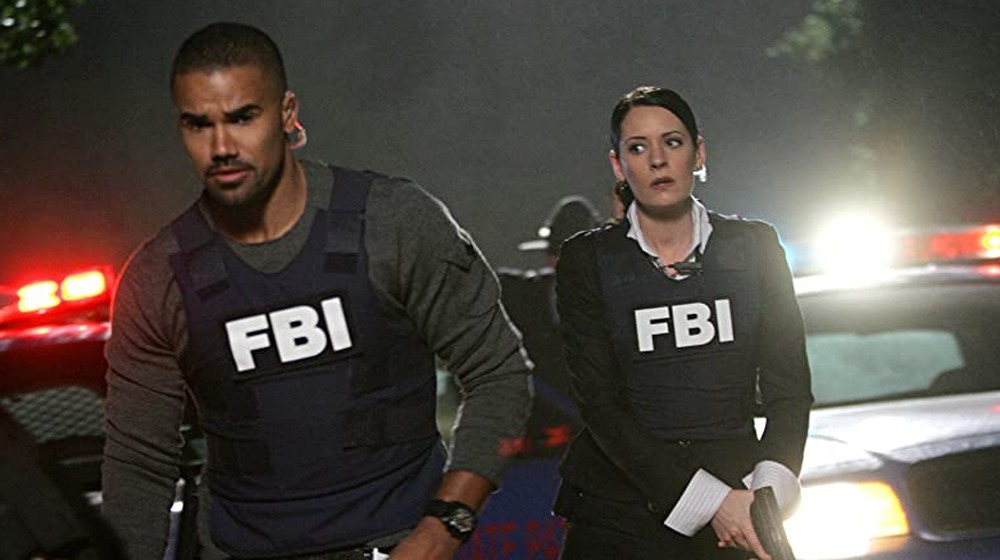What Criminal Minds Gets Wrong About BAU Consulting
Over the course of 15 seasons, the CBS procedural Criminal Minds was a mainstay of the television landscape, following the trials and tribulations of the Behavioral Analysis Unit or BAU, a group of criminal profilers in the FBI who tackled cases across the country that were too overwhelming for local authorities. Starting out with a cast that included Mandy Patinkin, Shemar Moore, and Thomas Gibson, the list of castmembers on the show eventually included Rachel Nichols, Aisha Tyler, Adam Rodriguez, Jennifer Love Hewitt, and Daniel Henney, with Matthey Gray Gubler, AJ Cook, and Kirsten Vangsness remaining on the series for the entirety of its run. The show proved so popular, in fact, that Paramount+ announced its revival in February 2021 for a 10 episode run (via Deadline).
CBS tried to replicate the show's success with two spin-offs, Criminal Minds: Suspect Behavior and Criminal Minds: Beyond Borders, neither of which captured public attention the way the original show did. However, one of the most fascinating aspects of Criminal Minds is that it didn't invent the concept of the BAU: in fact, the Behavioral Analysis Unit is a real department in the FBI. However, the show's portrayal of the BAU did get some things wrong about what their real-life counterparts do.
Serial killers are not all the BAU investigates
A large majority of the cases the BAU on Criminal Minds investigated were serial killers and rapists. The gruesomeness of the crimes displayed on the show, in fact, was a point of contention, with star Mandy Patinkin abruptly leaving the show after two seasons due to how disturbed he felt by the show's content. But the reality of the BAU is that is their investigations are not limited to just gruesome murderers and rapists, but rather a wide variety of crimes that may require their expertise.
According to the FBI, there are five Behavioral Analysis Units that fall under the National Center for the Analysis of Violent Crime, or NCAVC. Each BAU specializes in different sectors, and together their purview extends across several areas of crime, including counterterrorism, cyber crime, public corruption, ViCAP, and a number of others. There are even separate units dedicated to crimes against children and crimes against adults. All together, this means that a BAU can be called for anything from an active shooter case to arson, to investigations of weapons of mass destruction. Which doesn't mean that they don't investigate serial killers and rapists as portrayed on Criminal Minds, but that those aren't the only types of case that a BAU would take on.
Criminal Minds' decision to focus on sensational crimes such as serial killings at the expense of the true nature of BAU is understandable, as the show is in the business of telling entertaining stories. With the revival season set to focus on one case over ten episodes, it remains to be seen what the nature of the case will be, and if the writers choose to acknowledge the truth about the real-life nature of the BAU.

